May 20, 2024 | 23:54 GMT +7
May 20, 2024 | 23:54 GMT +7
Hotline: 0913.378.918
May 20, 2024 | 23:54 GMT +7
Hotline: 0913.378.918
According to the General Department of Water Resources, since 2012, large reservoirs on Lancang River from the Chinese side operating tributary hydropower plants have affected the flow to the Mekong Delta, changing saline intrusion rules.
In the last five years, the Mekong Delta has experienced two historic salinity intrusions in the dry season, seriously affecting production and people's lives. In addition, the extent of saline intrusion has also increased compared to before.
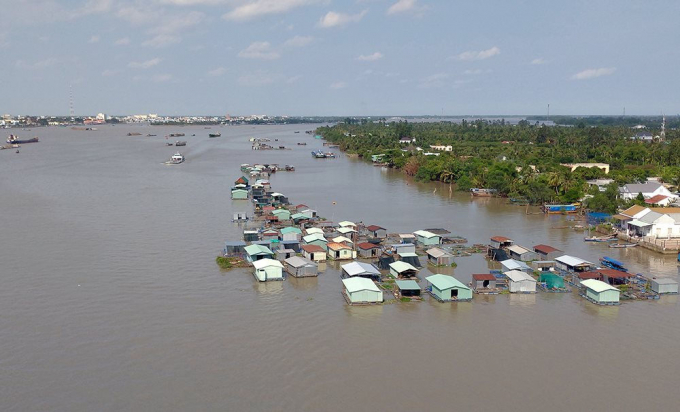
The irrigation sector sets the goals to control water resources well. Photo: TL.
Significantly, the salinity drought in 2015-2016 damaged 405,000 hectares of agricultural production, affecting the domestic waters supply to about 210,000 households. Meanwhile, irrigation infrastructure in the Mekong Delta mainly serves rice cultivation, has not yet exploited its full potential, the benefits from saltwater and brackish water for socio-economic development. Therefore, the Irrigation sector aims to control water resources well to serve the demands for production and people's daily lives.
Mr. Luong Van Anh, Deputy Director-General of the General Department of Irrigation (Ministry of Agriculture and Rural Development), said that there had been many difficulties in controlling water resources in the Mekong Delta, especially the southern region of Ca Mau and Bac Lieu province. However, with the irrigation planning for disaster prevention to 2030, and a vision to 2050, the Ministry of Agriculture and Rural Development is implementing a plan to secure the investment portfolio for significant projects such as water regulation on the Vam Co River or the project to transfer water to the south of Ca Mau, etc.
If the capital is fully met, the provinces will control and take the initiative in water resources. By 2050, based on the fluctuation of water flow from the upstream and the climate change scenario, the General Department of Irrigation will continue to adjust and invest in works to regulate freshwater and saltwater at estuarine regions.
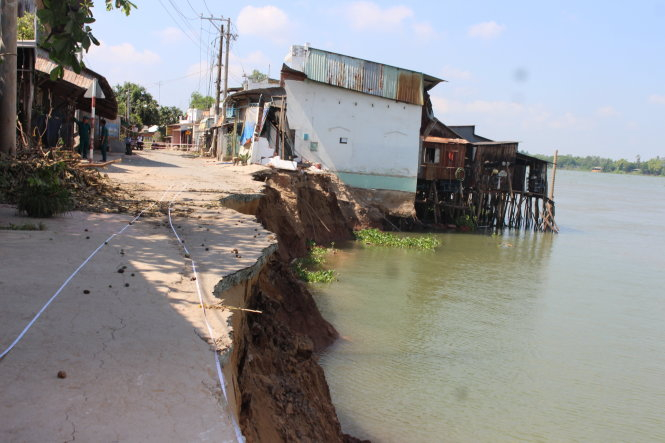
Landslide on Vam Nao riverbank, Cho Moi district, An Giang province on April 24, 2017. Photo: TL.
Regarding the issue of unevenly distributed water resources in the Mekong Delta, Mr. Dao Xuan Hoc, former Deputy Minister of Agriculture and Rural Development, Chairman of the Vietnam Irrigation Association, said that the total plains area of the Mekong Delta is only 5%. But the total of flows is enormous. Therefore, the irrigation sector needs to study water storage solutions and build a sluice system on rivers to store water in the drought season and open drainage in the flood season if there are no coastal reservoirs.
"We should have studies to be proactive about control water resources completely, avoiding impacts from upstream. Furthermore, water storage solutions must be studied synchronously, both in rivers and coastal reservoirs," said Mr. Dao Xuan Hoc.
Recent data show that in the next ten years (from 2021-2030), the water level will rise by 7 centimeters, and the average land subsidence is 2.5 centimeters each year. The Mekong Delta is in danger of sinking another 32.5 centimeters. Therefore, it is necessary to have a long-term and straightforward solution to prevent flooding in the Mekong Delta.
"We cannot do as we are now, which that we will build and upgrade dykes when flooded. This is because the cost of maintaining dikes every year is prohibitive," said Mr. Dao Xuan Hoc.
With the country's development, the demand for electricity and construction will be greater, pushing the construction of reservoirs to produce electricity and mining sand to increase, leading to erosion, lowering the river water level in the lower part of the river.
To solve this problem, the Government needs to have an overall policy for the Mekong Delta in a long-term direction, based on studying factors affecting upstream, internal development of the region, and impacts of the sea. This study will apply for construction activities to reduce the amount of sand leveling, thereby reducing sand mining activities in the river and reducing subsidence.
Translated by Ha Phuc
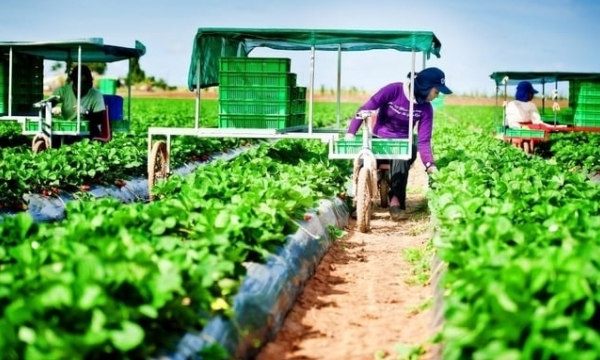
(VAN) According to the Ministry of Labor, Invalids, and Social Affairs, there has been a rise in fraudulent activities involving agricultural employment opportunities in Australia.
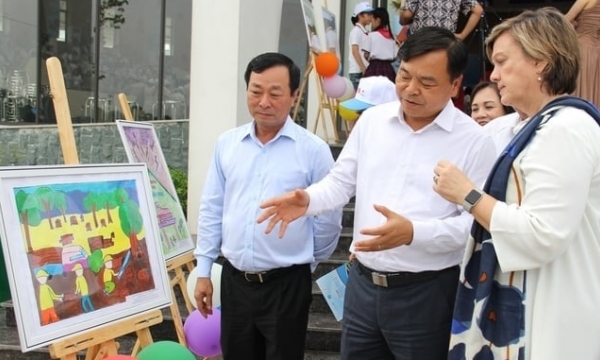
(VAN) According to Deputy Minister Nguyen Hoang Hiep, anticipatory action is a new approach in disaster management, with the aim of enhancing disaster prevention and preparedness.
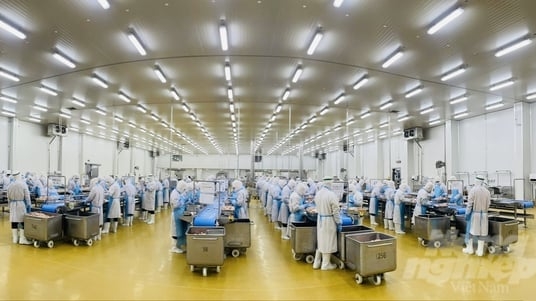
(VAN) The Ministry of Agriculture and Rural Development, in coordination with Tay Ninh Provincial People's Committee, organized a conference on May 18 to promote the export of animals and animal products.
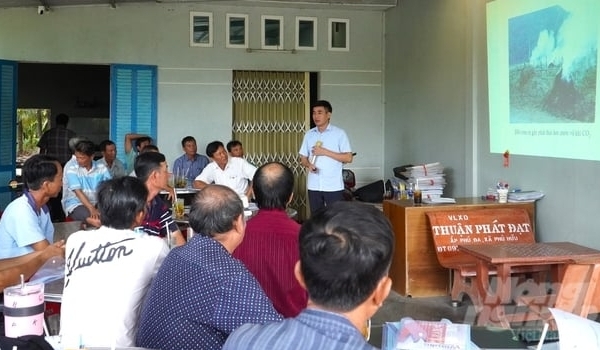
(VAN) From May 17-23, the National Agricultural Extension Center (NAEC) conducts training classes on the advanced rice farming process at 5 localities piloting for the 1 million ha of high-quality rice scheme.
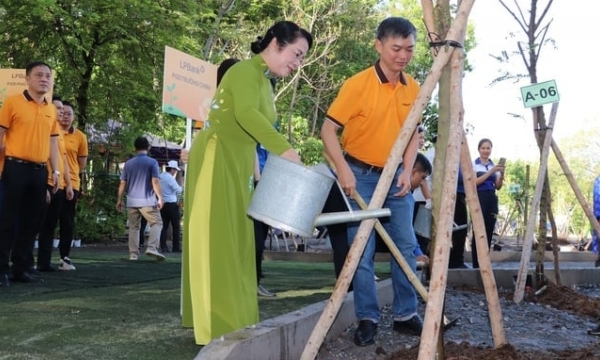
(VAN) Planting and expanding green spaces is a crucial effort to mitigate and adapt to the impacts of climate change, thereby creating a clean and livable environment.
/2024/05/17/5720-1-134847_782.jpg)
(VAN) EcoTraceTech - System for measuring CO2 and CH4 emissions from rice plants is the startup idea of a group of Can Tho University students.
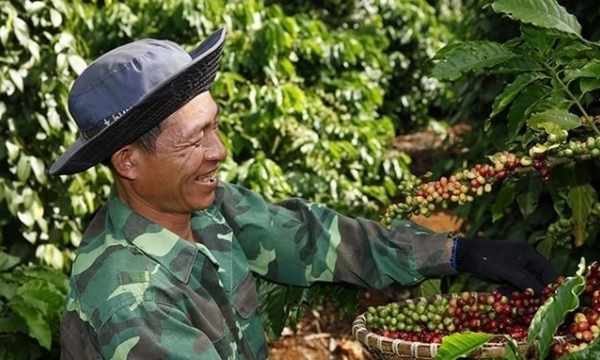
(VAN) The NESCAFÉ Plan by Nestlé Vietnam in the Central Highlands together with MARD aims to support coffee farmers in regenerative agriculture.